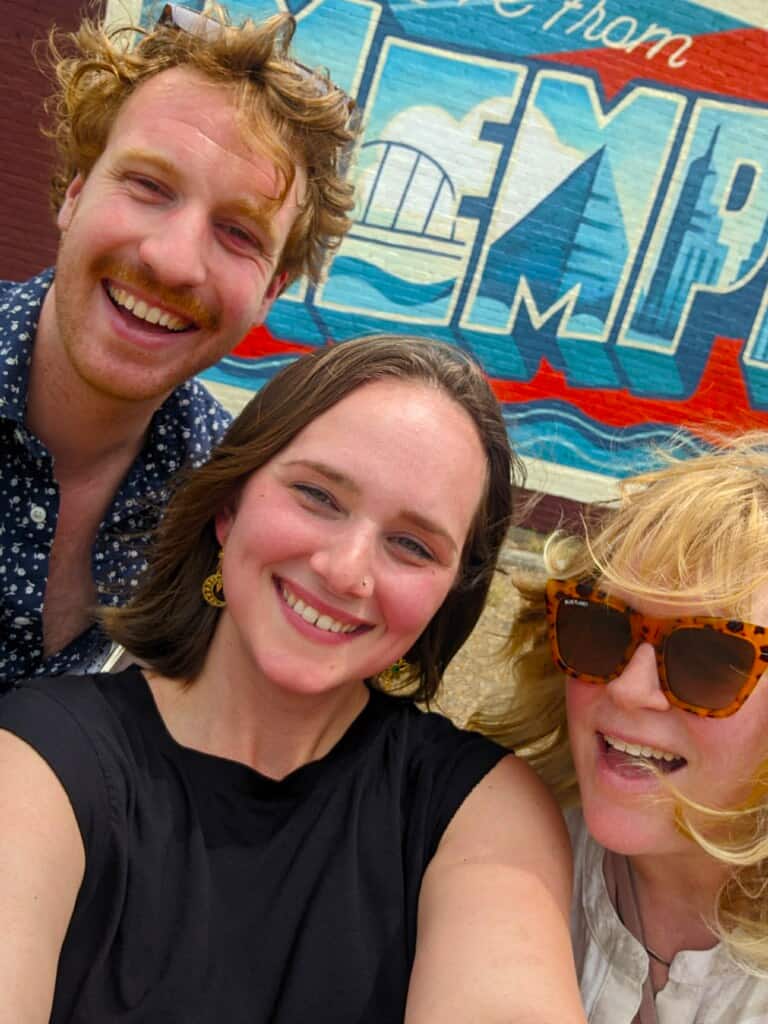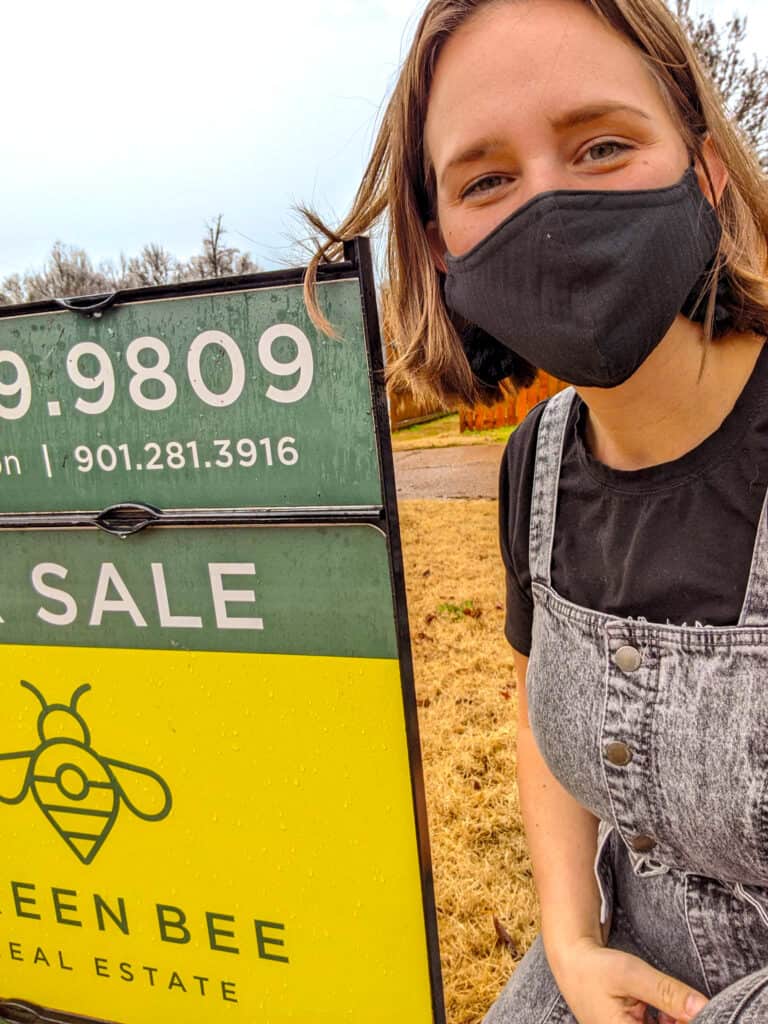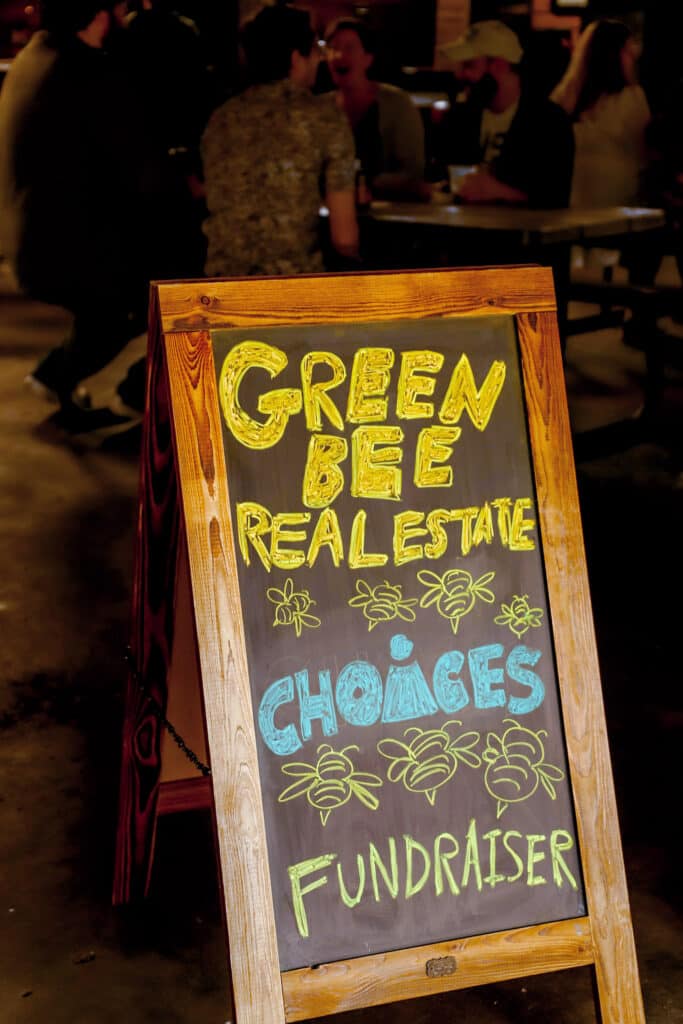Chris: Tell me a little about yourself.
Jenna: My name is Jenna Stonecipher Williamson, and I’m a native Memphian. I grew up all over this city. We moved a lot, but I feel like I know Memphis more intimately because of that.
In college, I worked for the Urban Child Institute studying data on early childhood brain development, the community implications of early childhood experiences, and evidence based, proactive policy solutions. After college, I immediately got a job in local government whereI had every intention of growing to working with or in legislative bodies for the purpose of passing good policy. I left the public sector after only 4 years, I’ve always been a data person and in 2013, I read a book about first generation wealth builders being either self-employed or in sales. So, I jumped into real estate.
What led you to open your business?
When I first started in real estate, I followed all of the models for success. They worked. For three years, I enjoyed what it felt like to have discretionary income. It felt incredibly good. Around year 4, I ended up reading another data-centered book about the intersection between environmental destruction, economic decline, and decades of poor policy. One thankful day, I was struck with the idea of opening a real estate brokerage that was motivated by giving instead by getting.In a traditional brokerage model, all agents split their commission checks with the real estate brokerage. Those commission splits and fees fund the brokerage expenses and profit margins. My idea was to recreate the brokerage model to be as low-rent as possible, as affordable to agents as possible, and also to funnel the commission splits into nonprofit donations. It gave me a reason to get up every day and go to work. The first year in business, I donated over $6k. In 2021, Morgan Pippen joined the brokerage and we’ve been dreaming big dreams ever since. I think this year will be about growth. The work isn’t just about our clients real estate needs, or our financial needs anymore. We are fueled by the needs of the community. Our goals are centered around how much we hope to give back–not personal production. One day, we hope to give back $100k
in one calendar year, and I genuinely believe we’ll be able to do it. That’s our big goal right now.
In what ways are you providing an equitable service to those who may otherwise face discrimination?
First, I want to say that the real estate world is incredibly discriminatory– and that very much includes the public that we serve. At a basic brokerage, agents are encouraged to stay “neutral”, as to not alienate any potential clients. At Green Bee, we are unapologetically progressive. Part of that means not providing services to people who are harmful. People with shared belief systems also tend to gravitate to us. Some of our favorite loan officers, closing attorneys, contractors are members of the LGBT community, or at the very least are unabashed allies. It’s not uncommon to run into my home inspector at Pride with his kids. And whenever possible, we prefer to recommend vendors and businesses that are women, POC, immigrants, and/or LGBT-owned. The home buying and selling process can be incredibly daunting. I think Morgan and I do a great job of guiding clients along and connecting them to safe and trustworthy vendors. We also believe POC and queer folks when they say they’ve had a poor experience with someone, and we steer clear. I imagine Green Bee as existing within a web of other, like-minded locally owned businesses where we all win together. “A rising tide lifts all boats” is one of my favorite aphorisms, and it’s because I think we can collectively create an ocean of goodness–an economy of safer choices where your money stays as local as possible.


What would the world look like under your business model?
I think it would look like businesses and government bodies making decisions that align with core values, based on the long-term wellbeing of the community–and not based on short-term profits. I would look like lifting up other organizations that do good, and it would look like starving out institutions that do us harm. Wells Fargo is a great example of that. Many people don’t know that the largest lawsuit to ever come against Wells Fargo was from Memphis. They were intentionally targeting communities of color with predatory loans. Don’t do business with them. It would look like passionate businesses creating calls to action around informed policy making so that our tax dollars are used as investments in the future and not just a patchwork quilt of bandages on today’s problems. It would look like real estate brokerages lobbying against large hedge fund investors and lobbying against PILOTs for commercial projects–despite the fact that many real estate professionals profit from these transactions. This is what we mean by “Community Over Commissions.” I really do get goosebumps when I think about how much change we could make just by better organizing ourselves. I think that most people want to do good. They want to care for themselves without doing so at the expense of someone else.
Jenna Williamson
“‘A rising tide lifts all boats’ is one of my favorite aphorisms, and it’s because I think we can collectively create an ocean of goodness–an economy of safer choices where your money stays as local as possible.“
What does it mean to you to partner with other businesses doing similar work?
Our clients trust us. They trust us to recommend loan officers, termite inspectors, closing companies, contractors–and any other number of housing related services or products. Partnering looks like consistently recommending people and companies who share our value system. I know that partnering with Memphis-owned businesses keeps wealth local to our community, and I can trust that supporting LGBT professionals means that the proceeds of my patronage won’t be used to fund harmful policies against people whom I love. Whenever possible, we love to host community events at local parks to raise awareness about social justice issues. We have hosted fundraisers, housewarmings, and private parties. It can be fun to bring our partners to the table to see how much they can contribute to the cause, amplify the message, and just create an event where everyone wins.
We are also really interested in being intentional about our nonprofit partnerships. Our nonprofits have to be local to receive donations, and our minimum donations so far have been $2k. We want to make sure our gift is enough to do something tangible. I love it when our nonprofit partners are focused on work that addresses a whole intersection of issues like Protect Our Aquifer with water quality and environmental justice or CHOICES with midwifery services and gender affirming hormone therapy. Morgan and I love being the connection point in the community between people who want to do well and those who are out there doing it. We love hearing from our clients and the community about what nonprofits we should donate to next!

What is your grown up Christmas wish for your sector?
This industry’s attrition rate is staggering; 87% of new agents will fail. It’s scary to think about how many transactions are conducted by licensed agents, with little to no training, who won’t even be in the industry 2 years from now. Real estate transactions are the largest financial transactions of our lives! Yikes. So, I guess my Christmas wish is for the bar to be higher. There should be required training at the brokerage level that teaches agents how to understand market data, read contracts, and navigate negotiations. There should be mandatory, structured mentorships that help professionals succeed and protect the public from uneducated and untrained agents. When you make a mistake in real estate, there can be several zeros behind that number. I just want everyone to have the best information and representation available, and it scares me knowing that 67% of buyers and 80% of sellers work with the very first real estate agent they speak to.
At the same time, the traditional brokerage model benefits from this churn and burn recruitment system. They charge agents monthly fees whether agents are doing transactions or not. It’s in the best interest of every real estate brokerage to house as many agents as possible, regardless of their competency. Again, this is what we mean when we say “Community Over Commissions.” At Green Bee Real Estate, we do not charge monthly fees. Every licensed agent has a minimum transaction threshold–because you have to be working in the market to keep your finger on the pulse of the market. The bar is high at Green Bee Real Estate, and we don’t care if that hurts our bottom line. People over profits.




